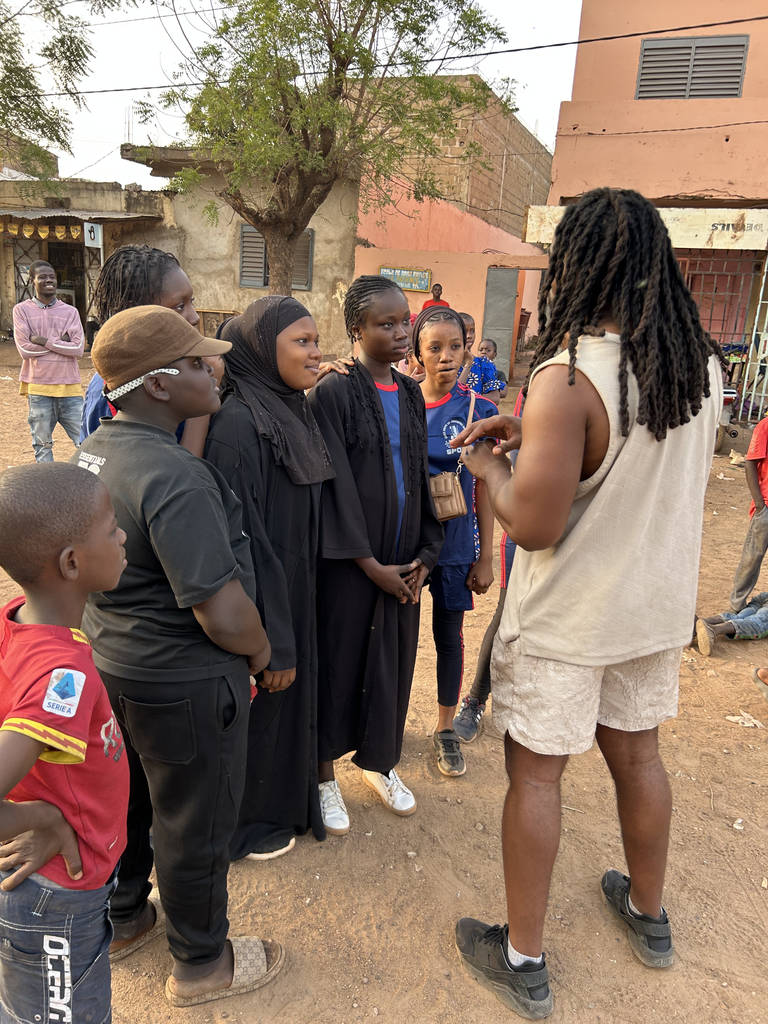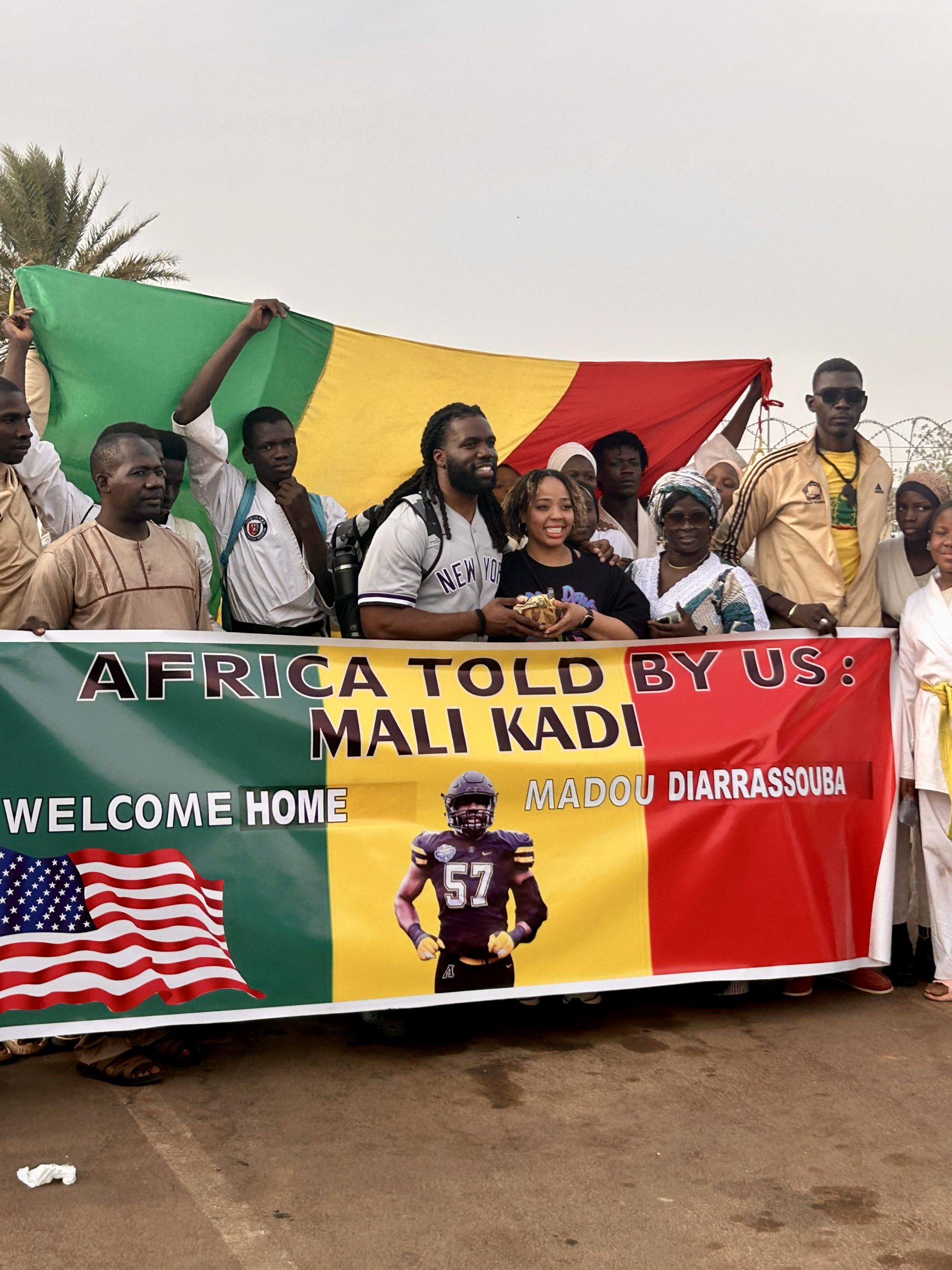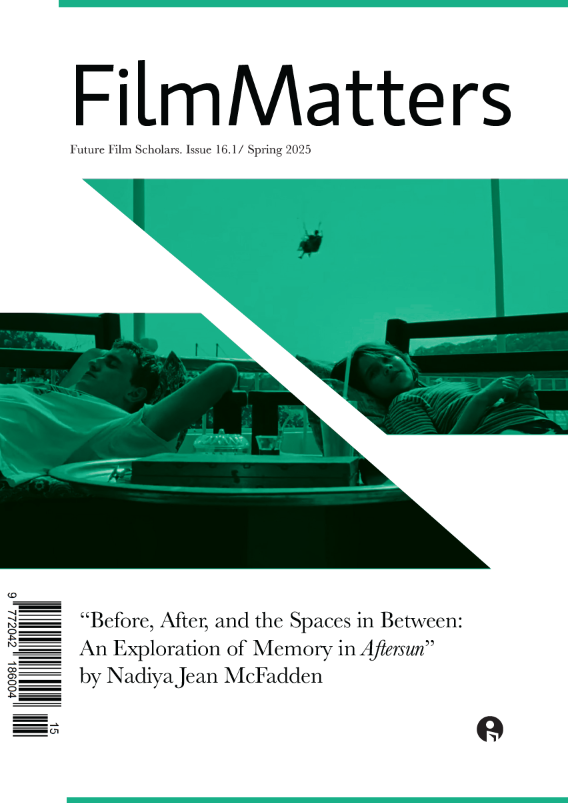Madou Elijah Diarrassouba is a documentary filmmaker who started out as a college athlete before making the jump into the world of film. From his time as an athlete, he’s created a down-to-earth and determined work ethic that he uses to fuel his work. His documentaries tell unique and diverse stories. His recent project, Africa Told by Us, reframes the African American experience by highlighting and reconnecting to the rich cultures of several African countries. I recently had the opportunity to talk with him about his journey in the industry and his films.
Holley Anne Brabble: Tell me about yourself, your films, and your journey to get where you are now.
Madou Elijah Diarrassouba: My journey has been from athlete to artist. I played football at Appalachian and my first film project was while I was playing football. I did a documentary on one of my teammates, Demetrius Taylor, who then went on to play for the Lions in the NFL. We did a documentary that kind of discovered the two complex worlds that an athlete typically lives in, on and off the field. It’s called The Hidden, put together during the peak of COVID, and the film did great once we released it so that’s what I would say kind of sparked my filmmaking career.
HAB: Starting as an athlete, this was your, kind of, launchpad into your artistic world. What was that like? How does that inform your work as a filmmaker?
MED: Being an athlete really helped me transition into filmmaking because it prepared me for one of the hardest parts of this industry, which is just finding a way to actually get things done. As an athlete, you’re used to setting goals, creating a game plan, and working toward a clear vision. That mindset translated directly into my work as a filmmaker, and I think it’s a big reason I’ve had the success I’ve had so far. When we were developing Africa Told by Us, we started in October 2024, and because my team and I approached it like we were prepping for a season, we were already on the ground shooting internationally by February. That kind of turnaround isn’t easy, especially for a project of that scale. So, yeah, being an athlete has definitely helped me in the film world. It’s really about taking the same discipline and leadership that made you great in sports and applying it to something else.
HAB: You mentioned your docuseries, and it seems like you’re going for an angle that’s not usually explored, an underrepresented aspect of the Black experience and history. That’s such a big project. How did you tackle that?
MED: I approached it like this: first things first, what am I trying to do, and what’s the overall goal or purpose? That was the main thing for me: just being really clear on what we’re actually trying to accomplish. My business partner Reshena Burch, who is also an executive producer on the docuseries, has been a huge asset. Being able to work alongside her and having the support of the community are probably the biggest reasons we’ve gotten this far with the project. And, of course, the crew. We had a solid team, and those guys really made things easier on us throughout the process. So, to answer your question, we tackled the project by building a strong production team, creating a clear game plan or goal, and just attacking it head-on. It’s really that simple. Now don’t get me wrong: it wasn’t easy, by any means, but that was the approach we took and it’s worked for us so far.
HAB: What draws you to documentary as a mode of filmmaking?
MED: I love both forms of storytelling, documentaries and narrative scripted films. What really pushed me toward this documentary was that I had just finished working with Kenan Holley, an Emmy-winning director in the documentary world. We worked on a project called Soul Power, which will be on Amazon in 2026. It’s about the NBA and ABA merger back in 1976. I was an assistant director on that and got to see everything from paper cuts, talking with editors, to budget discussions. I was learning so much. After working on a project that big, this opportunity came up and it felt like a sign. It was like God was telling me, you just learned everything you need to know, now go do it on your own. Kenan Holley has been an amazing mentor and big brother to me in the documentary space, and I’m really grateful for that. Having someone with his reputation guide me and encourage me to do things my own way was invaluable. . . . At first, I thought I’d just use this moment to capture something small for my kids, like a personal memory. But Kenan pushed me, saying, “No man, you got something special here. Go do it big and bring that energy I saw you bring every day on Soul Power.” That really stuck with me because, even though I like to consider myself someone who thinks big, it’s so important to have someone believe in you and catch those blind spots where you’re actually not thinking big enough.
HAB: Besides your documentaries, you’ve done stuff for universities and all these different pockets of the film industry. What’s it like working in so many different avenues, being in charge versus being part of the team? And how does that inform your work?
MED: The biggest thing about working in different roles is that you get to understand what it feels like to be in those positions. So, when you lead, you can connect with your team on a deeper level because you know what being in the trenches really means. They respect you more because you’re willing to do the hard work alongside them. When you have to be assertive, they don’t see you as just someone bossing them around. They see you as one of them, someone who holds themselves to the same standard.
I really learned the value of that mentality during my last two seasons at App State. Because of a serious hip injury, the team doctors and coaches gave me the option to not have mandatory team lifts, runs, and go through a lighter practice schedule. But if you ask any of my teammates, they’ll tell you I was there every day, grinding through the offseason with them, doing everything they did with no restrictions and at full speed despite the crazy amount of pain I was in. I think that’s why they voted me captain my senior year, even though I wasn’t able to play as much as I would have liked. They saw I held myself to the same standard I held everybody else to. If you want to touch that field on game day, you’ve got to put in the work, just like everyone else. That mindset carried over even when we were filming in Mali. I didn’t mind getting my hands dirty with the crew by helping carry gear, helping load the van, throwing others’ trash away, and just making sure they had everything they needed. That was a huge culture shock for me, when I first got into the industry, because directors, producers, and executives don’t usually do that kind of labor or what I call dirty work. That always bothered me. Instead of complaining, I told myself I would never be that person . . . I know I keep bringing sports into our conversation, but I feel like I have to. My experiences from playing team sports along with my humble upbringing have been my greatest asset, not only in the industry but in my life.
HAB: Your docuseries, it’s a lot about heritage and exploring that aspect of things. What can be learned from that? What did you learn? What were your big takeaways from that experience?
MED: So many things came from this experience. I would say one of the biggest takeaways for me was realizing that somewhere deep inside you, even if you don’t always see it or recognize it, there’s a part of you that means the world to somebody else. In the world we live in now with social media, chasing validation, and constantly comparing yourself to others, it’s easy to feel like you’re not as important or impactful as the next person. But this journey really taught me that every single human being has value that money can’t put a price on. That was huge for me. Another major thing I took away was being forced to ask myself what really makes a good life. My experience in Mali made me sit with that question in a way I never had before. When you look at that question from an American lens, the answers are usually tied to success, money, or status. But when you sit with people in Mali, you realize their definition of a good life can look completely different, and it’s not less than. It’s just different. That experience pushed me to ask myself real questions. What is a good life to me? What is happiness? What is love? What is family? What does it really mean to be selfless? Those are the things it made me reflect on, and I think that’s what makes the whole journey so powerful. It opened my mind. It reminded me to slow down and really think about what matters.
HAB: What inspires you in your work? And as you continue to work on so many projects, does it evolve? How does it evolve?
MED: I would say the biggest inspiration in storytelling is me wanting to create pieces I wish I had as a kid or that I wish I had as a resource at a certain point in my life. With my first film project ever, The Hidden, a documentary on my former teammate Demetrius Taylor, we both were going through a lot behind the scenes that a lot of people didn’t know about, but we still had to show up every day because our team depended on us. So, even though his story isn’t my personal story, I was able to connect to it and, because I related to it so much, putting it together was therapy for me. I had never opened Premiere before, had no concept of shutter speed, frames per second, or any of the things that are important to have basic knowledge of when creating a film. But because it was so therapeutic for me and a piece I knew I personally needed in my life, it gave me the energy to stay up till three or four in the morning trying to figure it out, even though I had practice and workouts the next day. This piece was something I knew I needed and, if I needed it, I knew there was someone else out there who needed it, too. When I released the film on Instagram, I was shocked by the messages I got from athletes all over the country, especially within the Sun Belt Conference. That’s when I saw the true power of storytelling. I’m the type of artist who wants to make pieces that my kids, kids in my community, or any kid out there in the world can look at and say, “I got something from that.” As far as how my creative work evolves, I would say it’s constantly evolving, because I tend to create from such a personal and therapeutic place. So it kind of evolves based on my experiences and how I’m feeling at any given time.
HAB: You mentioned authenticity in your storytelling. What is authenticity to you and how do you make those decisions of what to show and what not to?
MED: For me, I would say authenticity is just being real and showing your own flaws. That’s what I did with this first episode, “Mali Kadi.” It was a lot for me to open up to the world about my wrongdoings and how I was trying to right my wrongs. So that’s me being authentic, right? I’m pointing the finger at me and now is my time to right my wrongs. Where did I go wrong in this story? Where did I have flaws? I’m not just the victim; I’m a villain, too. I feel like that’s when you can be authentic: when you’re able to recognize your hand in the matter.
HAB: Going from North Carolina to Los Angeles, there’s a big difference there. What’s that like?
MED: Yeah, it’s been a culture shift, for sure. It’s been a big adjustment. Even just the filmmaking side, the creative process is different out here. But, overall, it’s been a great experience. I’m really grateful and glad to be on this journey, because I’ve learned so many things about myself that I never really noticed. Hopefully, I can take the resources and knowledge I gain here and bring them back to my community in Greensboro and North Carolina, to help teach others.

HAB: What do you have planned for the future? What can you share with us about upcoming projects and such?
MED: Right now, the biggest thing we have coming up is an event on August 16 in Atlanta. It’s the Africa Told by Us Malian Showcase, centered around the film we just finished shooting, and it’s gonna be amazing. We’ve got performances from American Idol finalist George Lovett and Kiandra Richardson, who was featured on Empire. There will be live dances, Malian food catered, and raffles. Plus, vendors for people to shop from. It’s going to be a full experience. That’s the next big thing on our calendar. After that, we’re focused on continuing Africa Told by Us, building on it, and getting it off the ground even more.
To support the Africa Told by Us project, please visit their Givebutter campaign.
Author Biography
Holley Anne Brabble is a fourth-year student at the University of North Carolina Wilmington studying Film and Creative Writing. She enjoys watching and writing about film, as well as creating her own original screenplays. She recently completed her first original short film Balzarina (2024) and looks forward to spending more time on set and continuing her educational and creative endeavors.









































